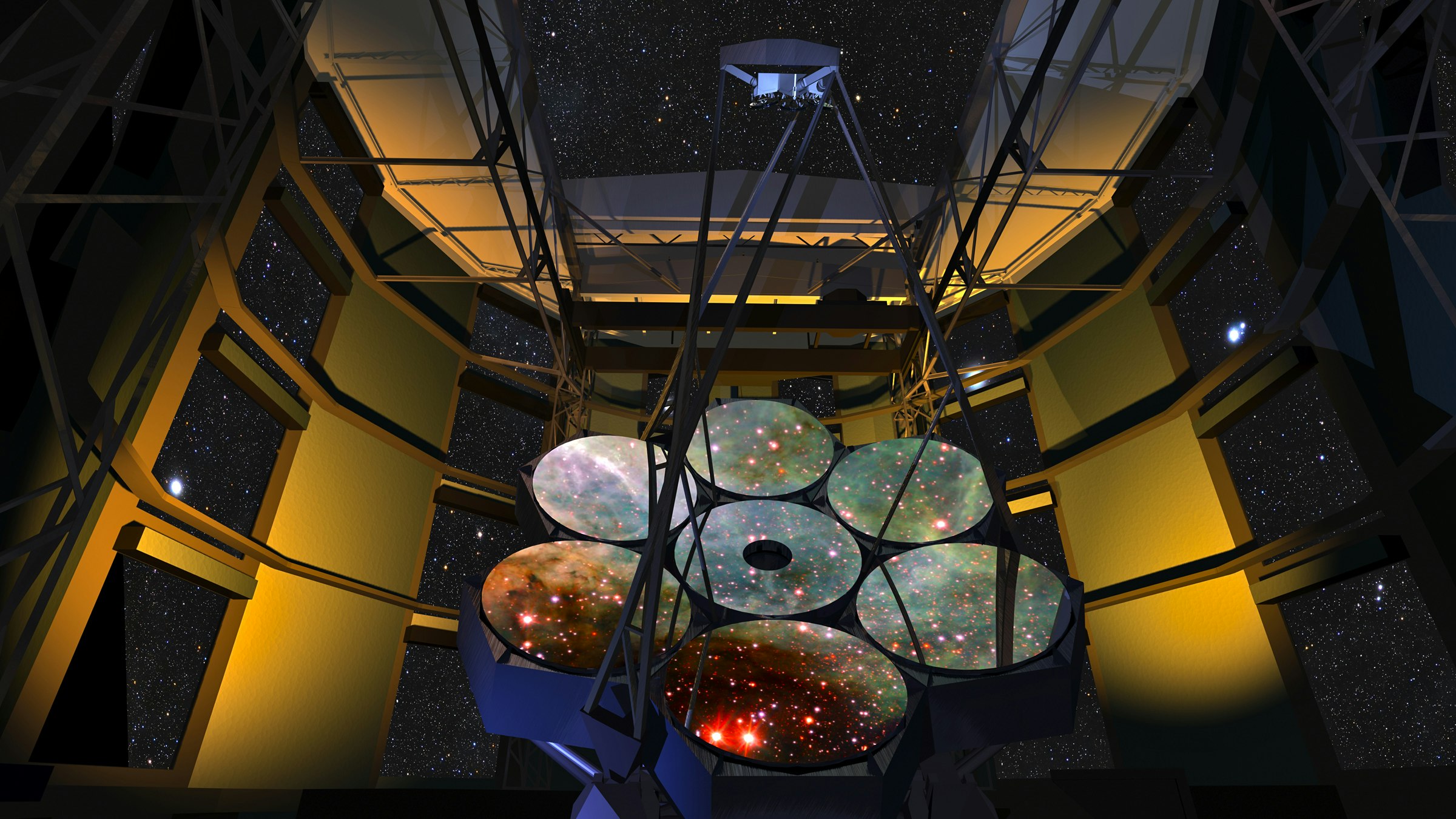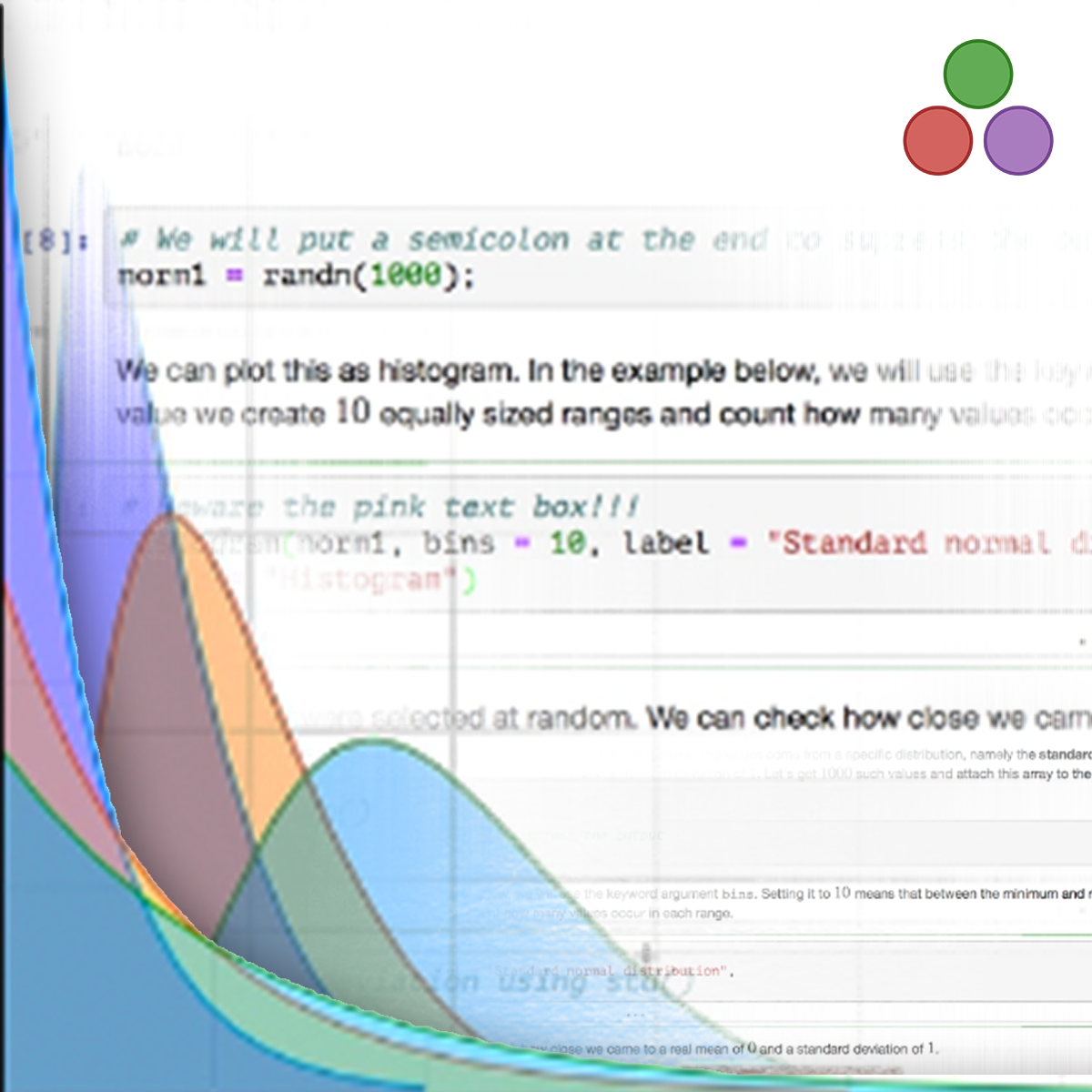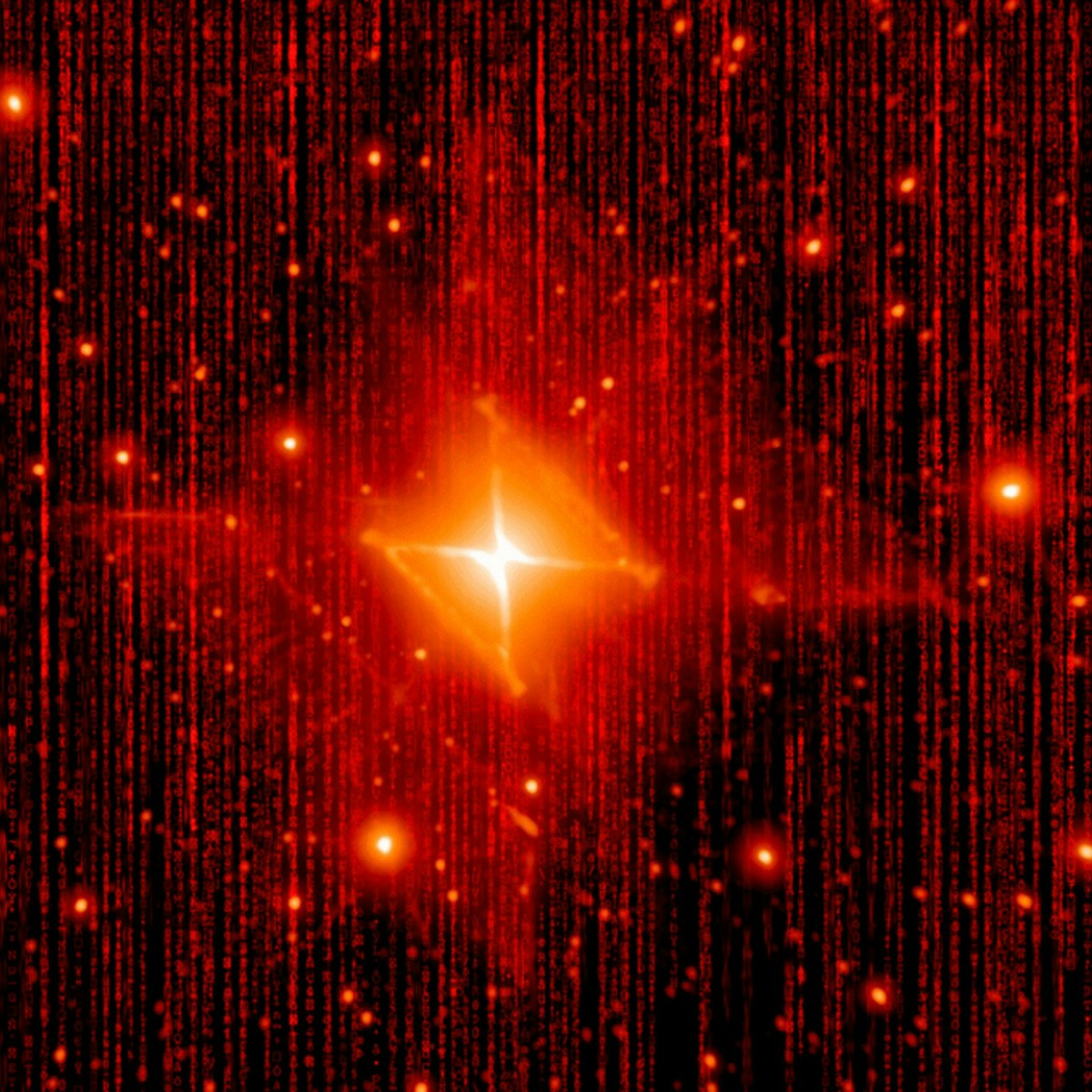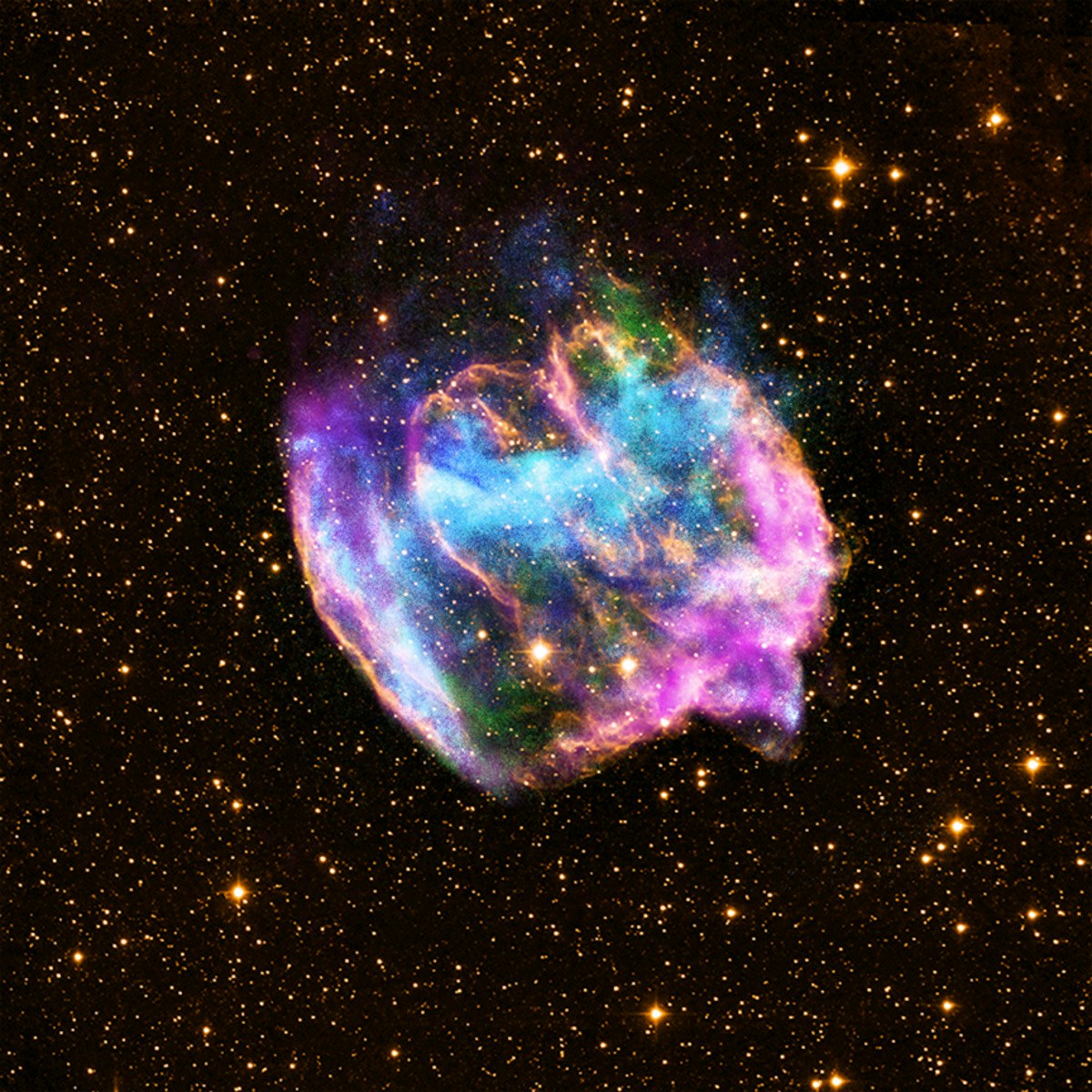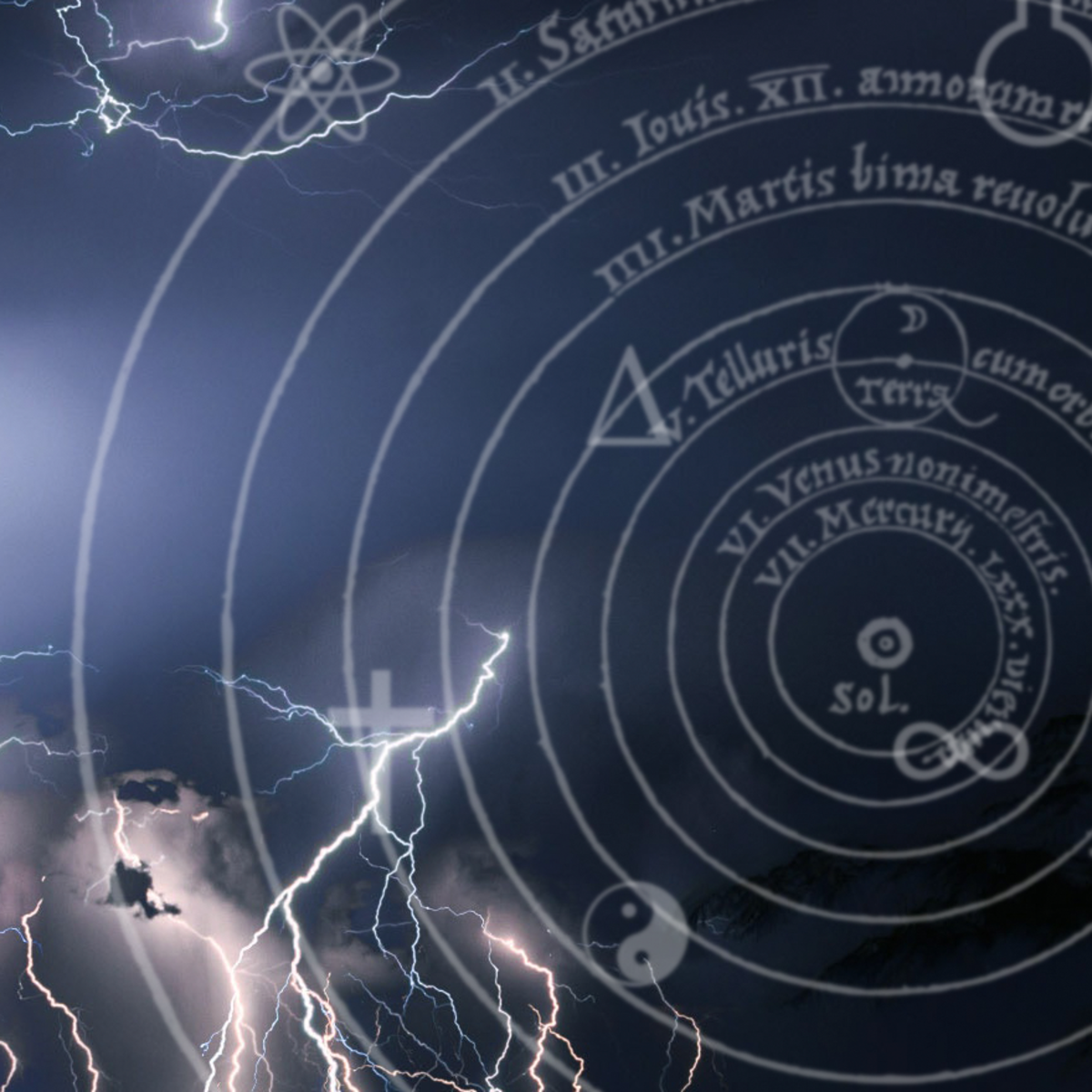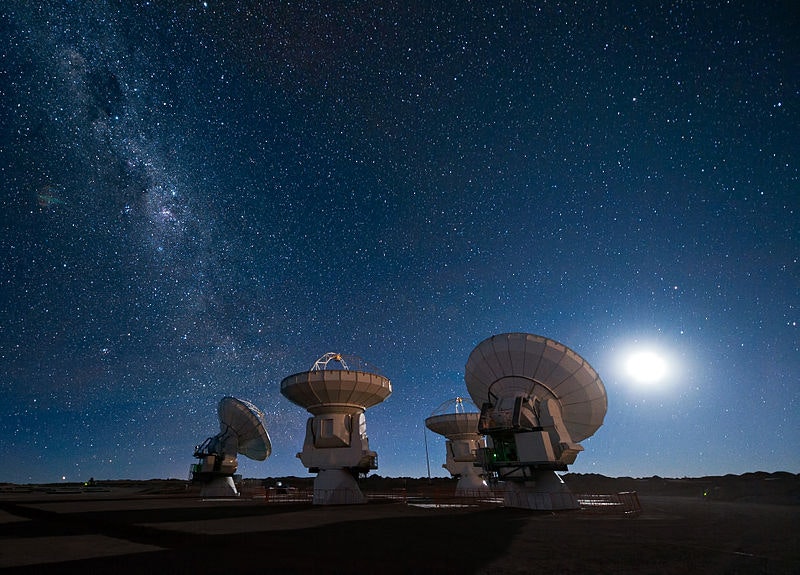Astrophysicist
Exploring a Career as an Astrophysicist
Astrophysics is a fascinating branch of space science that applies the laws and principles of physics to understand the nature of astronomical objects and phenomena. It delves into the universe's grandest questions: How did the universe begin? How do stars and galaxies form and evolve? What are black holes and dark matter? Astrophysicists use observation, theory, and computation to unravel these cosmic mysteries.
Working as an astrophysicist can be incredibly engaging. Imagine analyzing data from powerful telescopes like the Hubble or James Webb Space Telescopes, developing complex simulations of cosmic events, or contributing to theories that reshape our understanding of the universe. It's a field driven by curiosity, challenging intellectual puzzles, and the potential for groundbreaking discovery, seeking to understand our place within the vast expanse of the cosmos.
Introduction to Astrophysics
Astrophysics sits at the intersection of astronomy and physics. While astronomy traditionally focuses on observing and cataloging celestial objects, astrophysics uses physical laws – like mechanics, electromagnetism, thermodynamics, and quantum mechanics – to explain their properties and behaviors. It seeks to understand the "why" behind the "what" observed in the night sky.
Defining the Field
At its core, astrophysics seeks to comprehend the universe and everything within it through the lens of physics. This includes studying the birth, life, and death of stars, the formation and evolution of galaxies, the nature of exotic objects like neutron stars and black holes, and the origin and ultimate fate of the universe itself. It involves both theoretical modeling and observational data analysis.
The scope is vast, ranging from the study of planets within our solar system and beyond (exoplanets) to the large-scale structure of the universe and the fundamental nature of space and time. Astrophysicists might develop mathematical models, write computer simulations, design or use observational instruments, or analyze vast datasets collected from ground-based and space-borne telescopes.
This field relies heavily on abstract thinking and mathematical reasoning to connect theoretical predictions with observational evidence. It's a constant cycle of hypothesis, testing, and refinement, pushing the boundaries of human knowledge about the cosmos.
Here are some introductory courses to get a feel for the subject matter:
Major Research Areas
Astrophysics encompasses diverse subfields. Cosmology studies the origin, evolution, and ultimate fate of the universe as a whole, tackling questions about the Big Bang, dark matter, and dark energy. Planetary science investigates planets, moons, asteroids, and comets, both within our solar system and around other stars (exoplanets), including the search for habitable worlds.
Stellar astrophysics focuses on the physics of stars – their formation, internal structure, energy generation, evolution, and eventual demise as white dwarfs, neutron stars, or black holes. Galactic astronomy examines the structure, formation, and evolution of our own Milky Way galaxy and others, including the supermassive black holes often found at their centers.
High-energy astrophysics explores extreme phenomena like supernovae, gamma-ray bursts, quasars, and cosmic rays, often involving matter under extreme conditions. Observational astrophysics concentrates on developing instruments and techniques (like spectroscopy and interferometry) to gather data across the electromagnetic spectrum, from radio waves to gamma rays, as well as through other means like gravitational waves and neutrinos.
Connections to Other Disciplines
Astrophysics is inherently interdisciplinary. A deep understanding of fundamental physics is essential, forming the bedrock upon which astrophysical theories are built. Concepts from classical mechanics, electromagnetism, statistical mechanics, thermodynamics, quantum mechanics, and relativity are routinely applied.
Mathematics provides the language and tools for modeling cosmic phenomena. Calculus, differential equations, linear algebra, statistics, and computational methods are indispensable for theoretical work and data analysis. Increasingly, complex problems require sophisticated numerical simulations run on high-performance computers.
Engineering plays a crucial role in designing, building, and operating the advanced instruments astrophysicists rely on, such as telescopes, detectors, and spacecraft. Collaboration between astrophysicists and engineers is vital for pushing the frontiers of observation. Furthermore, the data analysis techniques used often overlap significantly with those in Data Science.
Formal Education Pathways
Becoming a professional astrophysicist typically requires extensive formal education, usually culminating in a doctoral degree. The path is rigorous, demanding strong aptitude and dedication in physics and mathematics from the outset.
Undergraduate Foundations
A bachelor's degree in physics or astronomy is the standard starting point. Regardless of the specific major name, the curriculum must include a strong foundation in classical mechanics, electromagnetism, thermodynamics, statistical mechanics, and quantum mechanics. Extensive coursework in mathematics, particularly calculus (single and multivariable), differential equations, linear algebra, and probability/statistics, is essential.
Introductory astronomy or astrophysics courses provide context, but the core physics and math skills are paramount. Computer programming skills, often in Python, are also increasingly vital even at the undergraduate level for data analysis and simulations. Research experience, perhaps through summer programs or working in a professor's lab, is highly beneficial for graduate school applications.
These foundational courses build the essential toolkit for tackling advanced concepts later on.
Graduate Studies and Specialization
A Ph.D. is generally required for independent research positions in astrophysics, whether in academia or government labs. Graduate programs involve advanced coursework in areas like stellar structure and evolution, galactic dynamics, cosmology, radiative processes, and general relativity. Students also begin specializing in a particular research area.
This specialization often involves working closely with a faculty advisor on a specific research project. Students learn advanced research techniques, data analysis methods, computational modeling, and scientific writing. Choosing a graduate program often means choosing a research group and advisor whose interests align with your own.
Master's degrees exist but typically serve as a stepping stone to a Ph.D. or prepare individuals for supporting technical roles rather than independent research. Admission to top Ph.D. programs is highly competitive, emphasizing strong grades, research experience, and letters of recommendation.
Courses exploring specific advanced topics can supplement graduate studies or provide insight into potential specializations.
The Ph.D. Journey and Postdoctoral Research
The core of a Ph.D. program is original research, culminating in a doctoral dissertation. This is a significant, independent contribution to the field, requiring years of focused effort. Alongside research, students often gain teaching experience as teaching assistants.
Upon completing the Ph.D., most aspiring academic astrophysicists undertake one or more postdoctoral research positions ("postdocs"). These are temporary research appointments, typically lasting 2-3 years each, designed to broaden research experience, build a publication record, and establish independence before applying for permanent faculty positions.
The postdoctoral stage is a critical, though often challenging, period for career development in academic astrophysics. It involves intense research activity, grant writing, and networking within the scientific community. The competition for permanent positions after the postdoc phase is fierce.
Skills Honed Through Training
Beyond subject-specific knowledge, astrophysics training develops highly transferable skills. Rigorous problem-solving abilities, both analytical and computational, are central. Advanced mathematical modeling and quantitative reasoning become second nature. Proficiency in programming (especially Python for data analysis and Fortran/C++ for simulations) and handling large datasets is essential.
Communication skills are also crucial. Astrophysicists must effectively present research findings through publications in peer-reviewed journals, conference presentations, and grant proposals. Critical thinking, creativity in approaching complex problems, and perseverance in the face of research challenges are also cultivated throughout the long training process.
Career Progression for Astrophysicists
The career path for an astrophysicist often begins in academia but can lead to roles in government research labs or, increasingly, the private sector. Progression typically depends on research productivity, funding acquisition, and leadership capabilities.
Starting the Journey: Early Career Roles
After obtaining a Ph.D., the most common first step is a postdoctoral research fellowship. Postdocs work under the supervision of senior researchers, contributing to projects, publishing papers, and gaining independence. Some might find roles as research assistants or associates, often supporting specific projects or facilities.
These early roles are crucial for building a strong research portfolio. Success is often measured by publications in reputable journals and presentations at international conferences. This period is characterized by intense research focus and significant effort to establish oneself in the field.
Competition for these positions is high, and securing multiple postdoc appointments is common before landing a more permanent role. The focus is squarely on demonstrating research potential and productivity.
Advancing the Career: Mid-Level Opportunities
For those pursuing an academic path, the next major goal is often a tenure-track faculty position at a university. These positions involve a mix of research, teaching, and service (committee work, student advising). Achieving tenure, usually after 5-7 years, provides job security and academic freedom but requires demonstrating significant research impact, effective teaching, and successful grant funding.
Outside academia, mid-career opportunities exist in government research institutions like NASA or national laboratories. These roles often focus purely on research, instrument development, or mission support. Some astrophysicists transition to industry, applying their analytical and computational skills in fields like data science, finance, or software development.
These roles require not only strong research skills but also the ability to mentor students or junior researchers, manage projects, and contribute to the broader scientific community or organizational goals.
Reaching the Top: Leadership Positions
Senior astrophysicists may progress to leadership roles. In academia, this could mean becoming a full professor, department chair, or dean. These positions involve greater administrative responsibility alongside continued research and teaching.
In government labs or agencies, leadership paths might involve becoming a principal investigator (leading major research projects or missions), heading a research group or division, or taking on high-level administrative or policy roles. Some may direct major observatories or research centers.
These leadership positions require not only scientific expertise but also strong management, strategic planning, and communication skills. They often involve shaping the direction of research programs and mentoring the next generation of scientists.
Where Astrophysicists Work
The primary employers remain universities and colleges, where astrophysicists conduct research and educate students. Government agencies, particularly space agencies like NASA in the US and ESA in Europe, along with national observatories and research laboratories (e.g., Fermilab, Lawrence Livermore), are also major employers.
Federally Funded Research and Development Centers (FFRDCs) often hire astrophysicists for specialized projects. Increasingly, the private aerospace industry (companies involved in satellite technology, space exploration) and tech companies (leveraging data analysis and modeling skills) offer alternative career paths.
Some astrophysicists also work in science museums, planetariums, science journalism, or policy advising, using their expertise for public outreach and education.
Key Skills and Competencies
Success in astrophysics requires a unique blend of theoretical knowledge, technical proficiency, and analytical skills. These competencies are honed through rigorous academic training and research experience.
Mathematical and Modeling Prowess
Astrophysics relies heavily on sophisticated mathematical models to describe complex cosmic systems. A deep understanding of calculus, differential equations, linear algebra, and statistics is fundamental. Researchers must be adept at formulating physical problems mathematically and solving the resulting equations, often requiring advanced analytical techniques.
Theoretical astrophysicists, in particular, spend significant time developing and refining these mathematical frameworks. The ability to abstract physical situations into mathematical language and manipulate complex equations is a core competency across the field.
Mastery of these mathematical tools allows astrophysicists to make predictions, interpret observations, and build a coherent understanding of the universe's workings.
Computational and Programming Skills
Modern astrophysics is impossible without computation. Proficiency in programming is essential for nearly all astrophysicists. Python has become dominant for data analysis, visualization, and general scripting due to its extensive scientific libraries (NumPy, SciPy, Astropy).
For computationally intensive tasks, such as running large-scale simulations of galaxy formation or stellar interiors, languages like C++ or Fortran are often used for performance. Experience with high-performance computing (HPC) environments and parallel programming can be advantageous. Familiarity with data analysis tools and platforms is also critical.
These computational skills are highly transferable, making astrophysicists attractive candidates for roles in data science, software engineering, and quantitative analysis outside of traditional research.
Data Analysis and Simulation Expertise
Astrophysicists work with vast and complex datasets from telescopes and simulations. They need strong skills in statistical analysis, data mining, and visualization to extract meaningful information from noisy or incomplete data. This includes understanding observational biases and uncertainties.
Expertise in using specialized astronomical software packages (like IRAF, CASA, DS9) for data reduction and analysis is often necessary. Furthermore, many astrophysicists develop or utilize sophisticated computer simulations to model physical processes that cannot be directly observed or recreated in a lab, comparing simulation results with observational data.
The ability to critically evaluate data, identify patterns, test hypotheses statistically, and interpret simulation outputs is crucial for making scientific progress.
Scientific Communication and Collaboration
Science advances through communication. Astrophysicists must effectively communicate their research findings to peers through articles in scholarly journals and presentations at conferences. This requires clear writing, logical argumentation, and the ability to convey complex ideas concisely.
Participating in the peer-review process – critically evaluating the work of others and responding constructively to reviews of one's own work – is a key part of the scientific endeavor. Grant writing is another essential communication skill for securing research funding.
Collaboration is also common in astrophysics, with large projects often involving international teams. Effective teamwork and communication across different institutions and disciplines are vital for success in many areas of modern astrophysical research.
Ethical Considerations in Astrophysics
While often focused on the distant cosmos, astrophysics is not without its ethical dimensions. Researchers and policymakers grapple with responsibilities related to space exploration, data handling, and international collaboration.
Managing Our Cosmic Footprint
As humanity launches more satellites and space missions, the issue of space debris becomes increasingly critical. Collisions in orbit can create clouds of debris that threaten operational satellites and future missions. Astrophysicists and engineers contribute to tracking debris and developing mitigation strategies, raising ethical questions about responsibility for orbital cleanup and sustainable space use.
Planetary protection protocols are another key concern, particularly for missions searching for life beyond Earth. Strict procedures aim to prevent contaminating other celestial bodies with terrestrial microbes (forward contamination) and protecting Earth from potential extraterrestrial life forms (back contamination). These protocols balance scientific goals with the ethical obligation to preserve pristine environments.
The long-term consequences of our activities in space require careful consideration, balancing exploration and exploitation with preservation and safety.
Data, AI, and Interpretation
Modern astrophysics generates enormous datasets. The increasing use of Artificial Intelligence (AI) and Machine Learning (ML) to analyze this data raises ethical questions. How do we ensure algorithms are unbiased? Who owns the data and the discoveries derived from it? How do we maintain transparency in complex AI-driven analyses?
Ensuring fairness in data access and the responsible application of powerful analytical tools are ongoing discussions within the community. The potential for AI to accelerate discovery must be balanced against the need for careful validation and ethical oversight.
As AI becomes more integrated into research, establishing ethical guidelines for its development and deployment in astrophysics will be crucial.
Global Collaboration and Equity
Astrophysics is a highly collaborative and international field. Major telescopes and space missions often involve partnerships between multiple countries and institutions. This necessitates navigating complex international agreements and ensuring equitable access to facilities and data.
Challenges can arise from differing national priorities, funding disparities, and geopolitical tensions. Ensuring fair representation and opportunity for scientists from all backgrounds and regions is an ongoing ethical imperative for the global astrophysics community.
Promoting open science practices, sharing data and software widely, and fostering inclusive collaborations are key to addressing these challenges and ensuring the benefits of astrophysical discovery are broadly shared.
Global Opportunities and Markets
Astrophysics is a global endeavor, with research centers, observatories, and opportunities distributed across many countries. The landscape is shaped by national investments, international collaborations, and the growth of the commercial space sector.
Geographic Centers of Research
Significant hubs for astrophysics research are found in North America (USA, Canada), Europe (particularly through the European Southern Observatory - ESO, and national institutions in Germany, UK, France, Italy, Spain, Netherlands), Chile (hosting many major international observatories due to its excellent atmospheric conditions), Australia, and increasingly in Asia (China, Japan, India, South Korea).
These regions host major universities with strong astronomy departments, national research facilities, and participate actively in international collaborations like the Square Kilometre Array (SKA) or missions led by NASA and ESA. Specific cities or regions often become centers for particular subfields.
Researchers often move between these centers for postdoctoral positions, collaborations, or permanent roles, making geographic mobility a common feature of an academic career.
Funding Landscapes Across Regions
Research funding models vary significantly by country. In the US, primary funding sources include the National Science Foundation (NSF) and NASA. In Europe, funding comes from national agencies (like STFC in the UK, DFG in Germany, CNRS in France) and pan-European organizations like the European Research Council (ERC) and ESA.
Funding levels and priorities can fluctuate based on government policies and economic conditions. Competition for grants is generally intense worldwide. Emerging economies are also increasing their investment in astrophysics research, creating new opportunities and collaborations.
Understanding the specific funding landscape in a given country or region is crucial for researchers planning projects or seeking positions there.
International Collaboration Frameworks
Large-scale astrophysics projects, such as major telescopes (like ESO's Extremely Large Telescope or the Thirty Meter Telescope) or space missions (like the James Webb Space Telescope), are often too expensive and complex for a single nation to undertake. International consortia and collaborations are therefore essential.
These collaborations involve complex agreements regarding funding contributions, instrument development responsibilities, observing time allocation, and data sharing policies. Organizations like NASA, ESA, ESO, and others have established frameworks for such partnerships.
Navigating visa requirements and institutional agreements is a practical aspect of international collaboration and mobility for researchers.
Emerging Markets and Private Space
The rapid growth of the private space industry ("NewSpace") is creating new dynamics. Companies involved in satellite deployment, space tourism, and resource extraction may offer alternative career paths for those with astrophysics backgrounds, particularly in areas like orbital mechanics, remote sensing, and data analysis.
Furthermore, some emerging economies are investing heavily in space science and technology as a driver of innovation and national prestige. This creates new geographic centers for research and potential markets for related technologies and expertise, expanding the global landscape of astrophysics.
Challenges and Obstacles
While intellectually rewarding, a career in astrophysics presents significant challenges. Aspiring and current astrophysicists should be aware of the hurdles related to funding, job security, work-life balance, and career transitions.
The Quest for Funding
Securing research funding is a major challenge, particularly for fundamental or "pure" research that may not have immediate practical applications. Grant proposal writing consumes a significant amount of researchers' time, and success rates can be low, leading to funding uncertainty.
This pressure is particularly acute in academia, where grant funding is often tied to career progression and tenure. Fluctuations in government science budgets can impact the availability of grants and stability of research programs.
Developing strong grant-writing skills and resilience in the face of rejection are essential for navigating the competitive funding environment.
Balancing Work and Life in Academia
Academic careers, especially during the postdoc and pre-tenure stages, are demanding. Long working hours, pressure to publish frequently ("publish or perish"), travel for conferences and collaborations, and the need to relocate for temporary positions can strain work-life balance.
The "two-body problem" – where a couple, both academics, struggle to find suitable positions in the same geographic location – is a common challenge. While rewarding, the lifestyle demands careful management and can be difficult for individuals and families.
Finding institutions with supportive policies and actively managing time and commitments are important for maintaining well-being in a demanding academic environment.
Navigating Intense Competition
The number of Ph.D. graduates in astrophysics often exceeds the number of available permanent academic positions. Competition for tenure-track faculty jobs is exceptionally fierce, requiring an outstanding research record, strong teaching evaluations, and successful grant acquisition.
Similarly, competition for prestigious fellowships and positions at top government labs is intense. This highly competitive environment requires sustained high performance and can lead to significant career stress and uncertainty.
Building a strong network, seeking mentorship, and developing a distinctive research niche can help navigate this competitive landscape.
Pivoting Beyond Academia
While many astrophysicists aim for academic careers, not all secure permanent positions. Transitioning to industry roles can present its own challenges. While the analytical, computational, and problem-solving skills are highly valued, astrophysicists may need to adapt their communication style and learn industry-specific tools or domain knowledge.
Overcoming the perception that academic skills are not directly applicable to business problems and effectively marketing one's transferable skills are key hurdles. Networking outside academia and potentially acquiring additional targeted training (e.g., through online courses in data science or finance) can facilitate a smoother transition.
Recognizing the value of their quantitative skills and proactively preparing for non-academic paths can open up diverse and rewarding career options for those leaving traditional research roles.
Consider exploring related fields where analytical skills are highly valued.
Future Trends in Astrophysics
Astrophysics is a dynamic field constantly evolving with new technologies, observational capabilities, and theoretical insights. Several key trends are shaping its future direction and creating new opportunities and challenges.
The Rise of AI and Machine Learning
The sheer volume and complexity of data generated by next-generation telescopes (like the Vera C. Rubin Observatory and the Square Kilometre Array) necessitate advanced analytical tools. AI and Machine Learning (ML) are becoming indispensable for tasks like identifying faint signals, classifying objects, analyzing complex simulations, and finding subtle patterns in massive datasets.
This trend requires astrophysicists to develop data science skills alongside their physics knowledge. It also opens up new avenues for discovery by enabling analyses that were previously intractable. The synergy between astrophysics and data science is expected to deepen significantly.
The Influence of the Private Space Industry
The increasing capabilities and ambitions of private space companies are changing the landscape. Lower launch costs enable more frequent missions and new types of satellite constellations. Collaboration between public agencies (like NASA) and private companies is becoming more common for launch services, cargo delivery, and even scientific missions.
This could lead to new platforms for astronomical observation and create more job opportunities for astrophysicists outside traditional academia and government labs, particularly in areas related to mission design, operations, and data analysis for commercial space ventures.
Next-Generation Observatories and Missions
Major new facilities are poised to revolutionize astrophysics. Ground-based telescopes like the Extremely Large Telescope (ELT), Thirty Meter Telescope (TMT), and Giant Magellan Telescope (GMT) will offer unprecedented sensitivity and resolution. Space missions like the Nancy Grace Roman Space Telescope will survey vast areas of the sky, probing dark energy and exoplanets.
Future gravitational wave observatories (like LISA) and neutrino detectors will open new windows onto the universe beyond the electromagnetic spectrum. These facilities will generate immense amounts of data, driving demand for sophisticated analysis techniques and potentially leading to unexpected discoveries.
For foundational knowledge on radio astronomy, consider these resources:
Interdisciplinary Convergence
Astrophysics is likely to become even more interconnected with other scientific fields. The study of exoplanet atmospheres links astrophysics with atmospheric science and potentially astrobiology. Understanding fundamental physics through cosmology connects astrophysics with particle physics and high-energy experiments.
Techniques developed for analyzing astronomical data may find applications in fields like medical imaging or climate modeling. This convergence fosters innovation and highlights the broad relevance of astrophysical research methods and insights.
Frequently Asked Questions
Navigating the path to becoming an astrophysicist raises many questions. Here are answers to some common inquiries.
Is a Ph.D. absolutely necessary?
For independent research roles, particularly in academia or government labs, a Ph.D. in astrophysics or physics is almost always required. It signifies the ability to conduct original research at the highest level. However, individuals with bachelor's or master's degrees can find related technical or support roles in observatories, labs, or aerospace companies, often involving data analysis, software development, or instrument support.
Some may also work in science education or outreach with less than a doctorate. But for a career primarily focused on leading astrophysical research, the Ph.D. remains the standard qualification.
What is the typical salary range?
Salaries vary significantly based on sector (academia, government, industry), experience level, geographic location, and specific role. According to the U.S. Bureau of Labor Statistics, the median annual wage for physicists and astronomers was $155,720 in May 2023. Postdoctoral positions typically offer lower salaries than permanent faculty or government research positions. Industry roles, especially in data science or finance, may offer higher compensation than traditional academic or government paths.
Academic salaries depend on the type of institution and rank (assistant, associate, full professor). Government salaries often follow standardized pay scales. It's essential to research specific salary expectations for the type of role and location you are considering.
How competitive are positions at NASA/ESA?
Positions at major space agencies like NASA (USA) and the European Space Agency (ESA) are highly prestigious and extremely competitive. These agencies attract top talent from around the world for research scientist roles, engineering positions, and mission support functions. Applicants typically need outstanding academic records, significant research achievements (often including postdoctoral experience), and skills relevant to specific agency missions or programs.
The application processes are rigorous, often involving multiple stages of review. While challenging to secure, these positions offer unique opportunities to work on cutting-edge space science and exploration projects.
Is age a barrier to entering the field?
While the traditional path involves progressing directly from undergraduate to graduate studies and postdocs, astrophysics welcomes talent regardless of age. Individuals pursuing career changes later in life can certainly enter the field, provided they acquire the necessary prerequisites (strong physics and math background) and are prepared for the demands of graduate school and research.
The key challenges for older entrants might relate to the time commitment required for a Ph.D., potentially lower starting salaries during training/postdoc phases compared to established careers, and navigating the competitive job market. However, life experience and diverse perspectives can also be assets. Motivation and ability are more critical than age itself.
Can astrophysics skills lead to tech jobs?
Absolutely. The rigorous training in quantitative reasoning, problem-solving, data analysis, computational modeling, and programming makes astrophysicists highly sought after in various tech roles. Many transition successfully into careers in data science, machine learning, software engineering, quantitative finance, and consulting.
The ability to handle large datasets, develop algorithms, build predictive models, and think critically are directly applicable skills. Some astrophysicists may supplement their background with online courses or certifications in specific tech areas to further enhance their marketability for these transitions. You can explore relevant courses on platforms like OpenCourser.
What's the difference between astronomy and astrophysics?
Historically, astronomy focused more on observing, mapping, and classifying celestial objects and phenomena. Astrophysics emerged as physicists began applying physical laws to understand the underlying processes governing these objects – their formation, evolution, and interactions. Today, the terms are often used interchangeably, as virtually all modern astronomical research incorporates physical principles.
If a distinction is made, "astronomy" might sometimes emphasize the observational aspects, while "astrophysics" emphasizes the theoretical interpretation and physical modeling. However, most professionals in the field consider themselves both astronomers and astrophysicists, working across observation, theory, and computation.
You can delve deeper into astronomy through various online resources.
Helpful Resources
For those interested in pursuing astrophysics further, several organizations and resources provide valuable information:
- American Astronomical Society (AAS): The major professional organization for astronomers and astrophysicists in North America, offering resources on careers, education, and meetings. AAS Career Services
- International Astronomical Union (IAU): The global organization promoting astronomy, with resources on international collaboration and standards. IAU Website
- NASA Careers: Information on careers and internships at the U.S. space agency. NASA Careers
- European Space Agency (ESA) Careers: Opportunities at the European space agency. ESA Careers
- Society of Physics Students (SPS): A professional association for physics students, offering career resources and support. SPS National
- OpenCourser: Explore a wide range of courses in astronomy, physics, and mathematics to build foundational knowledge or explore specific topics.
Embarking on a path toward astrophysics is a challenging yet potentially immensely rewarding journey into the fundamental workings of the universe. It demands dedication, intellectual curiosity, and strong analytical skills. While the traditional academic route is rigorous and competitive, the skills acquired open doors to diverse opportunities both within and beyond scientific research. Whether you aim to unravel the mysteries of dark energy or apply quantitative skills in new domains, the study of astrophysics offers a profound perspective on our place in the cosmos.

